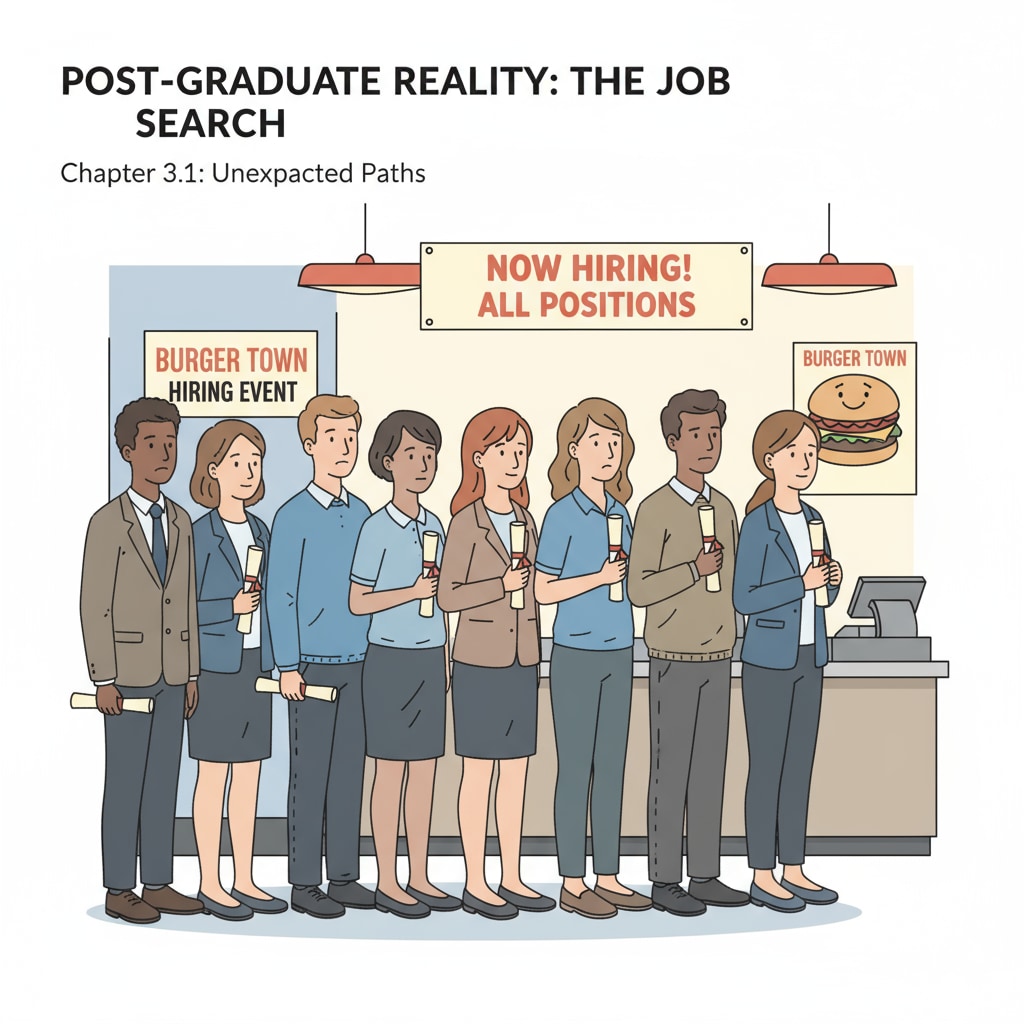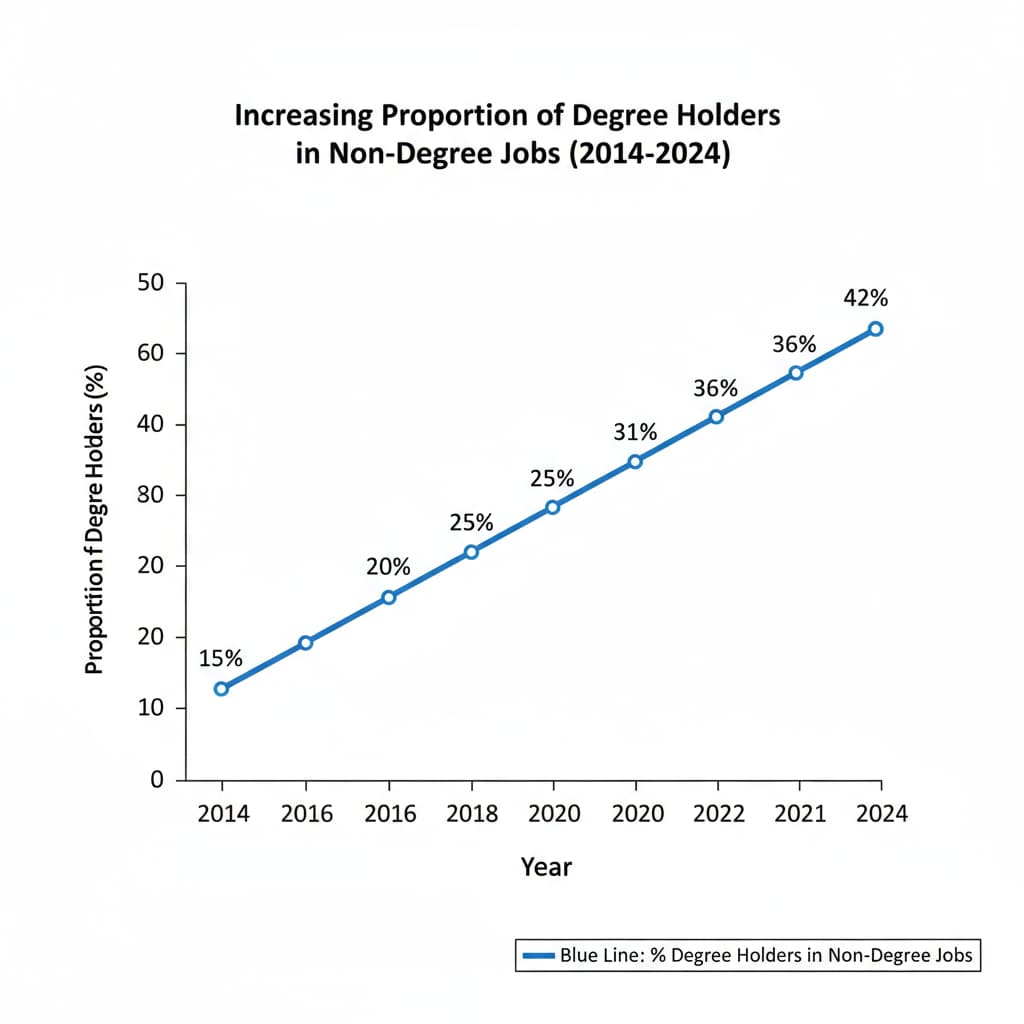University degrees, job market, and career development have always been intertwined topics. In recent times, the phenomenon of master’s and bachelor’s degree holders working in fast-food restaurants has become more prevalent. This has sparked a crucial debate about the actual value and return of a college education in today’s job market.

The Changing Landscape of University Degrees in the Job Market
Once, a university degree was like a golden ticket to a prosperous career. It opened doors to well-paying jobs and promising career paths. However, the job market has undergone significant transformations. According to Bureau of Labor Statistics, the number of degree holders in jobs that traditionally didn’t require a degree has been on the rise. For example, in the service industry, many positions that used to be filled by high school graduates are now occupied by those with bachelor’s or even master’s degrees. This shift indicates that the value of a university degree in the job market is no longer as straightforward as it once was.

The Impact on Career Development
For individuals, this change in the job market has a profound impact on career development. Many graduates find themselves in jobs that don’t fully utilize their academic knowledge and skills. As a result, their career progression may be hindered. In addition, the high cost of obtaining a university degree, including tuition fees and the opportunity cost of not working during those years, makes the return on investment less clear. For instance, a person who spends years and a large amount of money on a degree may end up in a job with a relatively low salary and limited growth prospects. National Center for Education Statistics data shows that student loan debt has become a heavy burden for many graduates, further complicating their career decisions.
So, what does this mean for the future? It’s essential for the K12 education system to adapt to this new reality. Instead of solely focusing on getting students into college, it should also prepare them for a wide range of career paths, including those that don’t necessarily require a traditional four-year degree. This could involve emphasizing vocational training, internships, and real-world skills development. By doing so, students will be better equipped to navigate the complex job market and find fulfilling career opportunities. In conclusion, while the value of a university degree in the job market has changed, it doesn’t mean that education is any less important. We just need to redefine what educational success looks like in the context of modern career development.
Readability guidance: Short paragraphs and lists are used to summarize key points. Each H2 section provides a list when possible. The proportion of passive voice and long sentences is controlled. Transition words like “however”, “therefore”, “in addition”, “for example”, and “as a result” are scattered throughout the text.


